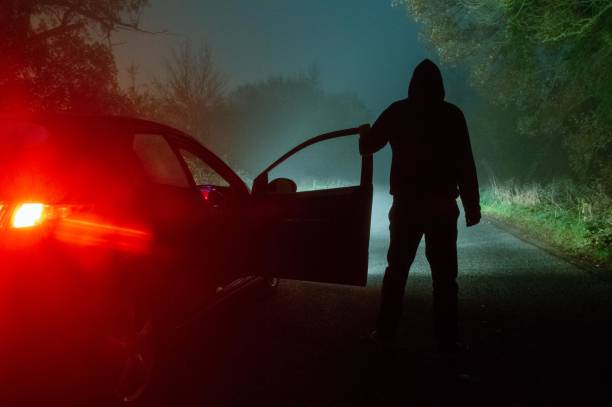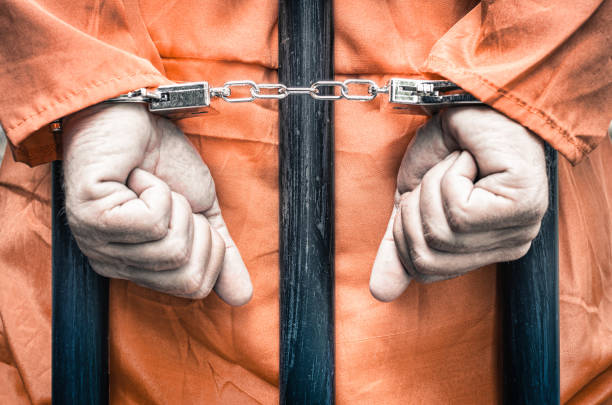
Crime is an ancient concept, basically means an action or omission which constitutes an offence punishable by law. Crimes or wrongdoings are a part of the society which can never be eliminated completely. But to reduce it to some extent and for the proper and smooth functioning of a country and to ensure that innocent lives are not subdued, it is very important to have strict laws against the offenders. The very basic function of these laws is to safeguard civil liberties.
Criminal law in India implies offences against the state, it incorporates felonies and misdemeanours. The standard of confirmation for wrongdoings is past a reasonable doubt. Criminal law is represented by the Indian Penal Code, 1860, Code of Criminal Procedure 1973, and Indian Evidence Act, 1872. Besides these major acts, special Criminal Laws are also passed by the Indian Parliament i.e. NDPS, Prevention of Corruption Act, Food Adulteration Act, Dowry Prevention Act, the Defence of India Act, etc. thousands of minor laws are made in India. This article is about the types of crimes and the types of laws enforced to stop them.
What counts as a Crime?
According to Black’s Law Dictionary, ‘Crime is an act that the law makes punishable; the breach of a legal duty treated as the subject matter of a criminal proceeding”. In other words, crime is an offence that merits community condemnation and punishment, usually by way of fine or detainment.
Crime is anti-social and illicit conduct to which punishments are attached. This anti-social conduct is rejected by society and rebuffed by law. Typically, it is distinct from a civil wrong (a tort), which is an activity against an individual that requires remuneration or restitution. Criminal offences are ordinarily indicted by the State, while it is ordinarily up to an individual to take civil action to the court.
As stated above, the concept of crime isn’t modern but it has existed from time immemorial, the concept and nature of crime have changed. Moreover, the definition of crimes has changed accordingly. In the era of the 20th century and with the invention of computers, the offenders have changed the mode of committing crimes from customary strategies to technological methods. The criminal law developed with the changing society. The concept of crime is a dynamic one, in this manner, it is not possible to characterize crime perfectly.
What is the state of Law Enforcement in India?
The rule of law that exists on paper in India does not always exist in practice. When it comes to procedural adequacy, India fares poorly. The country’s lawful undergirding is severely outdated and compelled by a propensity to pass modern laws instead of altering or eliminating the old ones, just like the colonial time Police Act.
India has one of the world’s largest numbers of under trial prisoners. A little over two-thirds of India’s roughly 4.2 lakh prisoners await trial. Frail laws yoked to an even weaker authorization framework virtually ensure that the powerful will transgress with abandon. India’s investigative organizations have ended up being politicized and starved of assets, foundation and administration. Just how terrible the circumstance has gotten to be is underscored by the truth that about a third of the state and national lawmakers, the very individuals charged with composing the laws, faced criminal charges at the time of their election.

However, endeavours to bar these officials are regularly stymied by fears of how politicians would utilize new rules as cudgels against their rivals. The system has become a puppet in the hands of the strong and powerful. The crime rates have been increasing drastically and nothing is being done. The cases just keep on piling up in the courts and the people seeking justice have to keep on waiting. The authorities who are responsible for punishing criminals lack efficiency. The roots have been infected with corruption and justice is not served. We have all seen how the rich have always escaped even after being guilty of crimes.
So, how do we call ourselves sovereign when the basic system that has the duty to provide us with justice has been infected by malpractices? There’s a quick increment in the crime rate in our Indian economy. These crimes are caused due to the unpunished wrongdoers. The need for adequate personnel hinders the capacity of the Indian state to preserve law and order, and successfully regulate justice. This poses an enormous challenge to Indian democracy and to the Indian economy. The need for a viable and quick criminal justice framework tends to dampen appetite for ventures within the nation.

Apart from this, the pendency of criminal cases is like a sword hanging over a person’s head, and straightforwardly influences their freedom, free development, and interaction in society, even if the charged isn’t in jail. It is for all these reasons that a rapid trial, or a “reasonably speedy trial”, has been held to be an indispensable and essential part of the fundamental right to life and freedom cherished in Article 21 by the Supreme Court. It is imperative to keep in mind that delays within the organization of justice influence not only the rights of the blamed but also the rights of the casualties. Long trials can lead to evidence, particularly eyewitness testimony, being overlooked or lost, which decreases the chance of conviction. Given that casualties have a really limited part to play within the arraignment of a criminal case, and thus no control over its advance, delays within the conclusion of the trial can discourage casualties from recording or seeking after the case tirelessly.
Issues like marital rape which in fact is serious but been not taking one has no jurisdiction in India. Marital rape is quite a big issue in India not just because we do not have laws for it but also because looking over at the society the lawmakers cannot even think of laying one knowing the awful orders and the orthodox mentality. According to data’s conceived by us, 1 in 3 men concede to raping their spouses, and 1 Indian lady is raped by her husband every 3 seconds. Also not just women, men have also become a victim of marital rape and domestic violence. It is a crying disgrace that even after so many years that marital rape has existed, it has not yet been criminalized in this nation.
Can there be two yardsticks to define rape – rape of an unmarried woman and that of a married woman? What kind of justice are we giving to any person irrespective of gender whose very basic fundamental right; the right to life provided under Article 21 of the Indian constitution is being violated. That article is known as the heart and soul of the Indian constitution and if our judiciary is not even able to provide that then we can imagine what the state of law enforcement in the current scenario against crime is.
Conclusion
The state of law enforcement is deteriorating, but steps can be taken to prevent all of this. We have laws but we need better implementations and for that, we need efficient agencies. We need to stop electing people who don’t deserve to run this country and restore India back. The police and other agencies which look after the law and also the citizens of India have to be more efficient and have to stop being puppets of the rich. Unless and until people become morally correct until then justice will not have justice.